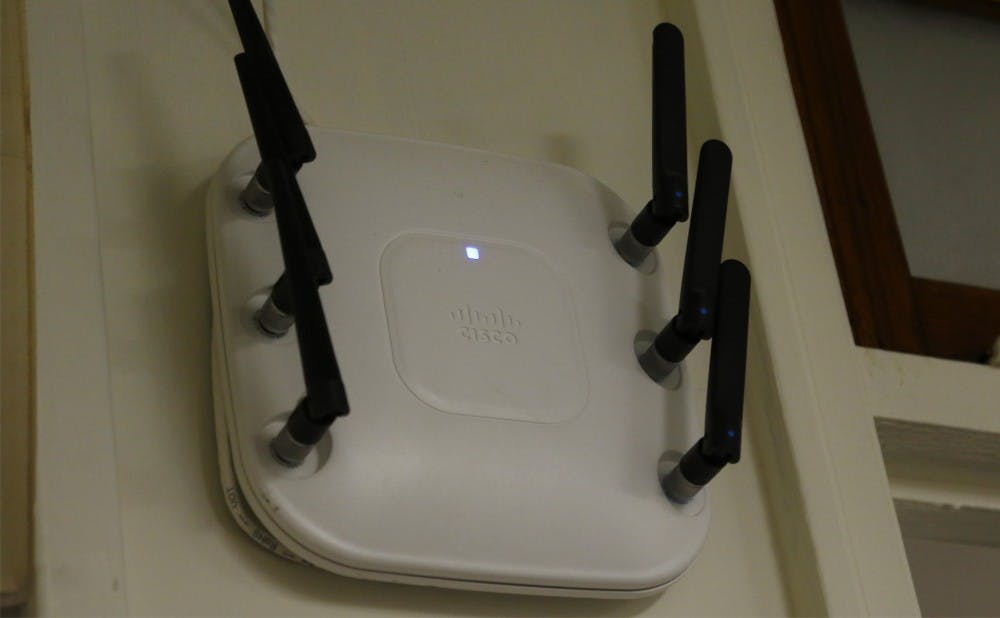The Office of Information Technology has launched a new wireless internet network that aims to provide greater security.
The new network—called “Dukeblue”—provides encrypted, or scrambled, transmission of data for the Duke community’s communications to ensure they cannot be intercepted by hackers. It will replace the less secure “DUKE” network after the end of the Spring semester, but is already available for phones, laptops and other wireless devices.
“We’re always looking for ways to increase the security of our IT services and Duke’s data, while emphasizing ease of use for our faculty, students and staff,” Richard Biever, the University's chief information security officer, wrote in an email. “Having an encrypted wireless network was a very obvious choice, in our estimation, so that our community could benefit from having an encrypted, private wireless connection while on campus.”
Biever noted that testing on the network began during the second half of 2015 and that it was introduced to the community last month.
Presently, the security of wireless networks relies on people’s individual computers rather than the network itself, which can lead to problems for users, Biever explained.
“It is not uncommon for attackers to trick people into connecting to insecure wireless networks by naming the network something familiar (e.g. Starbucks, ATTwifi, Panera) and enticing people to connect to the network, click on a fake certificate and then begin to intercept network traffic from the user,” Biever wrote.
As part of an encrypted network, computers will not as easily fall victim to such attacks, he noted, adding that if computers use “https” in a website’s URL, then it is secure.
The new network did not require improvements to existing infrastructure or many expenditures, Biever wrote. However, this means it does not provide faster service. He explained that OIT is evaluating the strength of wireless signals around campus to determine if other improvements are needed.
It was difficult to ensure that the network would function across multiple types of devices, he noted.
“The challenge was ensuring it worked for Duke’s diverse number of operating systems and devices. We spent a lot of time testing how android, iOS, Windows, Mac and Linux computers and devices had to be configured to utilize the network,” Biever wrote.
He noted that the network “Eduroam,” which works across university campuses and off campus, is already a secure network.
There will be information sessions for students about how to connect to the secure network on East and West Campus. Biever wrote that he hopes to have faculty and staff transitioned to the new network by July 1.
Get The Chronicle straight to your inbox
Signup for our weekly newsletter. Cancel at any time.
Adam Beyer is a senior public policy major and is The Chronicle's Digital Strategy Team director.

